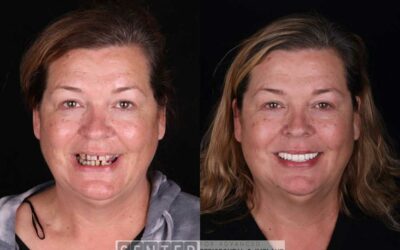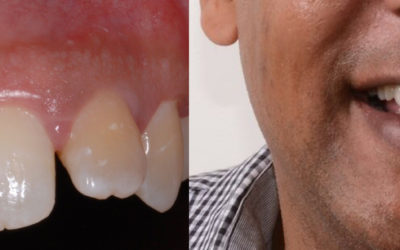What Are The Signs Of A Failed Dental Bone Graft?
Bone graft failures aren’t common, but they can cause severe pain and oral health complications. If you have recovered from periodontal disease, need a tooth extraction, or are planning to get dental implants, there is a good chance our Los Angeles grafting specialists may recommend a dental bone graft.
Why Would a Bone Graft Procedure Fail?
Most people experience completely normal dental bone graft healing. The success and predictable nature of dental bone grafts are what make dental implants a long term option for so many people in Los Angeles. However, there are occasional instances where a person might experience dental bone graft failure. Total bone graft failure is usually related to one of the following situations:
Inadequate Home Care and Oral Hygiene
As with any oral surgery, it’s important to care for your bone graft site properly after your appointment. Inadequate home care or poor oral hygiene will allow bacteria to accumulate around your surgical site, predisposing you to some type of infection. If it were an open surgical site anywhere else on your body, you would want to keep it extremely clean. Your mouth is no different.
At the time of your dental bone graft surgery, you will be provided with written home care instructions. Be sure to follow them accurately and call your dentist if you’re experiencing any discomfort or warning signs of a failed bone graft.
Inexperience of the Dentist
Normally, a complex dental bone graft procedure is performed by an oral surgeon, periodontist, or other specialists. Such oral surgeons and therapists are experts when it comes to oral rehabilitation. They also have added resources and technology on hand to ensure an accurate, minimally-invasive care experience.
However, some general dentists do offer bone grafts in their practice. Especially if they are performing an extraction before dental implant surgery. But if your dentist is inexperienced in bone graft treatments, there could be an added risk involved.
Contamination of the Bone Tissue
Bone grafting material is maintained in a sterile state leading up to the actual procedure. But if processed bone minerals become contaminated during preparation or at the time of the actual placement, it could allow for a compromised surgical site. Again, this is where the experience of an periodontist or oral specialist becomes extremely helpful.
At our practice, we often use a Smart Dentin Grinder, where we can take the patient’s extracted tooth and turn it into an autologous graft to ensure faster bone healing and soft tissue response, reduce the cost, create excellent dense bone quality, enhance implant stability, and have no rejection, inflammation, disease transmission, or fast resorption.
Active Oral Infection
Do you have periodontal disease? Chronic gum disease can jeopardize any dental surgery, including dental implants and bone grafts. Although the bone loss caused by gum disease may be the reason why you need a bone graft to begin with, the infection needs to be resolved well before the bone graft is placed. Periodontal therapies like deep cleanings and good home care can help reverse inflammation within a few weeks.
Intense Pain After a Bone Graft
Scientifically speaking, bone graft material and the bone it’s placed next to do not have any pain receptors. While some mild tenderness in your gums is considered normal, noticeable pain is not. If there is pain, it is typically because of a secondary infection.
Our Los Angeles experts will usually recommend an over-the-counter anti-inflammatory like Motrin (ibuprofen) for a day or two after your bone graft appointment. But if you feel like you need something stronger and you notice the symptoms getting worse, there could be a complication with your bone grafting site. Even after a tooth extraction or dental implant procedure, you shouldn’t feel like you need a stronger pain reliever further on in your recovery stage.
Drainage or Swelling Around Dental Bone Graft
It’s normal to see minor inflammation after oral surgery. Especially if a tooth is removed, you receive a sinus lift, or the bone graft procedure is more involved. Anti-inflammatory medication typically keeps swelling to a minimum after your appointment. But if you begin to notice more prominent swelling and inflammation directly at the bone graft site, it could be a sign that you are experiencing dental bone graft failure.
Along with smooth, swollen, tender gums, you might also notice visible discharge (pus) coming from the soft tissues or around the tooth. Drainage and pus secretion are not a normal side-effect of dental bone grafting. If you notice that there is drainage or the swelling is getting worse after a day or so, you will need to call our Los Angeles dentist immediately.
Soreness or Redness a Few Days After Surgery
Redness in the gum tissue over your bone graft is usually a sign of an infection. Like swelling, redness indicates an overdrive in your blood vessels in that area because of something going on inside of your body. In this case, your body has likely rejected the bone graft, or it is infected in some way.
While minor redness is completely normal on the day of any oral surgery, it should improve within the next few days. In contrast, a failed bone graft may present itself as worsening redness as the days go by.
Discomfort or soreness is also common. Since some dental bone grafts fail when the bone becomes dislodged, it may be that a bone chip is working its way through the gum tissue above it. While most bone chips work their own way out, you will need to have the area examined to rule out the failure of the bone graft as a whole.
Successful Bone Grafting
Ideally, after dental bone grafts are placed, the new bone fuses/attaches to the surrounding bone in a process we call “osseointegration.” Bone grafting isn’t necessary for all dental implant patients, but it is if there is inadequate bone tissue at the installation site.
Working with an experienced specialist like the team at the Center for Advanced Periodontal & Implant Therapy in Los Angeles will help ensure the best outcome from your dental bone grafts. Our experts have performed thousands of successful dental bone grafts and know what it takes to minimize complications.
Get Expert Advice
If you’re in need of oral rehabilitation but have recently experienced a failed dental bone graft surgery, we encourage you to call. Our Los Angeles periodontists are happy to assist you, even if we were not the provider of your dental bone graft.
You May Also Like...
Is Getting a Dental Implant Painful? Insights and Expectations
Did you know that over 3 million people have dental implants, and that number is growing by 500,000 annually? Despite...
Elevating Dental Implant Standards in Los Angeles for Patient Safety
Sarah's Implant Journey: A Testament to Transformation Meet Sarah. Three years ago, Sarah avoided mirrors, rarely...
Comparing Immediate Load vs. Traditional Dental Implants
Dental implants have revolutionized the way we replace missing teeth. They're not just prosthetics; they restore the...



